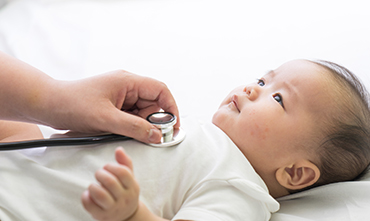Congenital Heart Disease

Congenital heart disease (CHD) refers to structural heart defects present at birth. While some cases are mild and go unnoticed, others may require medical attention later in life. Thanks to advancements in diagnosis and treatment, many individuals with CHD now live well into adulthood.
Symptoms of Congenital Heart Disease in Adults
Symptoms of congenital heart disease may appear later in life, even if a defect was treated in childhood. Common symptoms include:
- Irregular heartbeats (arrhythmias) – The heart may beat too fast, too slow, or irregularly.
- Blue or gray skin, lips, and fingernails – This occurs due to low oxygen levels in the blood, though it may be harder to detect in some skin tones.
- Shortness of breath – Even mild exertion may cause difficulty breathing.
- Fatigue – Feeling extremely tired or weak during physical activity.
- Swelling (edema) – Fluid buildup, often in the legs, feet, or abdomen.
When to Seek Medical Attention
Emergency care is necessary if you experience:
- Unexplained chest pain
- Sudden shortness of breath
Schedule a health checkup if:
- You experience persistent symptoms of congenital heart disease.
- You had a congenital heart defect treated as a child and need ongoing monitoring.
Regular heart screenings and consultations with a cardiologist are essential for managing adult congenital heart disease effectively. Early detection and proactive care can help prevent complications and improve long-term heart health.




